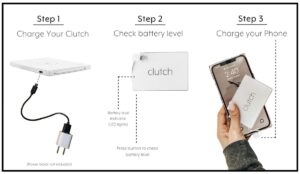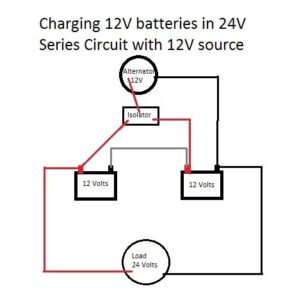Wondering how long your car battery can last without an alternator? The answer depends on several factors, but fear not! I’m here to shed some light on this common concern. Your car’s alternator plays a crucial role in keeping the battery charged, so it’s only natural to wonder what happens if the alternator fails. Well, the battery can power the car for a limited time, usually between 30 minutes to an hour, depending on the battery’s condition and the electrical load of your vehicle. But let’s dig deeper and explore what happens when the alternator goes dark and the battery takes the spotlight.
How Long Will a Car Battery Last Without an Alternator?
The alternator is a critical component of a car’s electrical system. It plays a crucial role in keeping the battery charged and ensuring the smooth operation of various electrical components. However, there may be situations when the alternator fails or malfunctions, leaving you wondering how long your car battery can sustain your electrical needs. In this article, we will explore this topic in detail and provide you with valuable insights.
Understanding the Function of an Alternator
Before delving into how long a car battery can last without an alternator, it is important to understand the function of this vital component. The alternator is responsible for converting mechanical energy into electrical energy while the engine is running. It keeps the battery charged and powers the electrical systems in the vehicle. Furthermore, the alternator helps maintain a stable voltage across the battery, preventing it from overcharging or discharging.
The Role of the Car Battery
The car battery serves as an energy reservoir, supplying electrical power to start the engine and operate various components when the vehicle is not running. It is designed to provide bursts of high current to start the engine and then rely on the alternator to recharge itself and meet the ongoing electrical demands. The battery also acts as a voltage stabilizer, helping to regulate the electrical flow and prevent damage to sensitive components.
Factors Affecting Battery Life Without an Alternator
The duration your car battery can last without an alternator depends on several factors. Understanding these factors will give you a better idea of what to expect in such situations. Here are the key factors that influence battery life without an alternator:
- Battery Health: The overall health and condition of the battery play a significant role in determining its longevity without an alternator. A well-maintained and fully charged battery will typically last longer.
- Battery Capacity: The capacity of a battery refers to its ability to store electrical energy. Batteries with higher capacity can sustain your electrical needs for a longer period.
- Electrical Load: The electrical load refers to the sum of all electrical devices and systems that draw power from the battery. Higher electrical loads will deplete the battery more quickly.
- Driving Conditions: The driving conditions also affect how long the battery can last without an alternator. If you frequently drive short distances or engage in stop-and-go traffic, the battery may deplete faster.
- Climate: Extreme temperatures, both hot and cold, can impact battery performance. In very cold weather, the battery’s capacity may decrease, affecting its ability to sustain power without an alternator.
Estimating Battery Life Without an Alternator
While it is challenging to provide an exact estimate of how long a car battery will last without an alternator, we can provide some general guidelines. Keep in mind that these estimates can vary depending on the factors mentioned above.
Healthy Battery, Minimal Electrical Load, Ideal Conditions
If your battery is in good condition, your electrical load is minimal, and you are driving under ideal conditions, it is possible to run your car solely on battery power for approximately 2-3 hours. This estimation assumes that the battery is fully charged before disconnecting from the alternator.
Healthy Battery, Moderate Electrical Load, Mixed Conditions
In situations where the electrical load is moderate and conditions are less than ideal, the battery may last for about 1-2 hours. Moderate electrical loads may include using lights, windshield wipers, and other essential systems. Mixed conditions refer to a combination of short trips and moderate driving.
Depleted Battery, Heavy Electrical Load, Challenging Conditions
If your battery is already partially depleted, you have a heavy electrical load, and you are driving in challenging conditions, the battery’s lifespan without an alternator may be significantly reduced. In such cases, the battery may last for only 30 minutes to an hour.
Extending Battery Life Without an Alternator
While it is best to address alternator issues as soon as possible, there may be instances where you need to rely on the battery alone for an extended period. Here are some tips to help you extend the battery life without an alternator:
- Minimize Electrical Load: Turn off all non-essential electrical systems and devices to reduce the strain on the battery.
- Avoid Short Trips: If possible, avoid frequent short trips, as they can drain the battery faster. Combine errands and plan your trips efficiently.
- Drive at Higher RPMs: By driving at higher RPMs, you can increase the alternator’s output, allowing it to charge the battery more effectively.
- Use Plug-in Charging: If available, consider using a plug-in charger or jumper pack to provide temporary power to the battery.
- Seek Professional Assistance: If you are unsure about the condition of your battery or the extent of alternator issues, consult a professional mechanic for guidance.
In conclusion, the duration a car battery can last without an alternator depends on various factors. However, with a healthy battery, minimal electrical load, and ideal conditions, you can expect it to last around 2-3 hours. It is essential to address alternator issues promptly to avoid relying solely on the battery for prolonged periods. Following the tips provided can also help you extend the battery life without an alternator in emergency situations. Remember, it is always best to consult a professional for a thorough diagnosis and resolution of any alternator or battery-related problems.
Frequently Asked Questions
How long can a car battery last without an alternator?
A car battery can typically last between 2 to 5 hours without an alternator, depending on various factors such as the age and condition of the battery, the electrical load on the vehicle, and whether the car is running or not. However, it’s important to note that driving a vehicle without an alternator for extended periods can significantly drain the battery and eventually cause it to die.
What is the purpose of an alternator in a car?
The alternator in a car is responsible for recharging the battery and providing electrical power to the vehicle’s electrical system while the engine is running. It converts mechanical energy from the engine into electrical energy, which is then used to power the car’s lights, electronics, and other electrical components.
What happens if the alternator fails in a car?
If the alternator fails in a car, the battery becomes the sole source of power for the vehicle’s electrical system. As the battery’s charge is depleted, the lights and electrical components may dim or stop working altogether. Eventually, the vehicle will lose all power and come to a complete stop.
Can you jump-start a car without an alternator?
Yes, you can jump-start a car without an alternator. Jump-starting provides a temporary source of power to the battery, allowing you to start the engine. However, once the engine is running, the alternator should take over and recharge the battery. If the alternator is faulty or not functioning, the battery will continue to lose charge and may eventually die again.
How can you prolong the life of a car battery without an alternator?
To prolong the life of a car battery without an alternator, it’s important to minimize the electrical load on the vehicle. This means turning off all non-essential electrical components such as lights, air conditioning, and audio systems. Additionally, limiting the distance and time you drive without an alternator can help preserve the battery’s charge and extend its life.
Final Thoughts
The lifespan of a car battery without an alternator depends on various factors. On average, a fully charged battery can last anywhere from 2 to 4 hours without the alternator’s support. However, this duration can vary based on the battery’s age, condition, capacity, and the electrical demands of the vehicle. It’s important to note that driving without an alternator can quickly drain the battery, leading to a shorter timeframe. Regular maintenance and timely alternator repairs or replacements are crucial to ensure the optimal performance and longevity of both the battery and the alternator. So, how long will a car battery last without an alternator? It’s essential to address any issues promptly and not rely solely on the battery’s power for an extended period.



